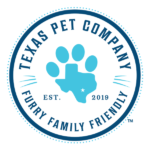Under mounting pressure from the Food and Drug Administration (FDA), Bayer Corporation suspended the sale of its hugely profitable drug Trasylol in November 2007.
A blood clotting drug used during heart surgery to control bleeding, Trasylol was given to more than four and a half million people worldwide. About one and a half million Americans received Trasylol during its 14 year run on the US market.
Studies found that patients who received Trasylol during heart bypass, heart valve replacement and other cardiac surgery were more likely to die than patients who received other available blood clotting drugs. Deaths were due to heart failure, kidney failure, heart attacks and strokes the patients suffered after surgery.
In 2007, Bayer designed a major Canadian trial to show that Trasylol was better than other drugs in controlling bleeding. The trial was terminated, however, because of an increase in deaths among cardiac surgery patients using the drug. Patients receiving Trasylol had a 50 percent increased risk of dying compared with patients receiving other drugs.
What’s a few thousand deaths among friends?
60 Minutes reported in February 2008 that Bayer had known about Trasylol’s safety concerns for decades and about the abnormally high incidents of deaths associated with the drug since 2006. Yet Bayer continued aggressive marketing of the drug, raking in well over $300 million annually. The FDA permitted Trasylol to stay on the market, contributing to an estimated 1,000 deaths a month for the 22 months before its recall.
The 60 Minutes report went on to describe Bayer’s own internal study evaluating the risk of patient deaths from Trasylol. Medical records of nearly 70,000 patients were examined by a Harvard professor who was placed on the Bayer payroll. What the professor found was that patients given Trasylol had an elevated risk of acute renal failure.
Bayer concealed this study from the FDA during a safety review of Trasylol in 2006. The drug giant further charmed the FDA into allowing Trasylol to stay on the market. More than a year passed before the FDA got around to reviewing the adverse effects of Trasylol again. Finally, the FDA recalled the drug but imposed no fine or penalty on Bayer.
What does this have to do with fleas & ticks on dogs and cats?
Another way Bayer works wonders is with its insecticide Imidacloprid, the active ingredient in Advantage Flea & Tick treatment for dogs and cats. Laboratory test results on file with the U.S. Environmental Protection Agency show Imidicloprid to be neurotoxic to dogs and other laboratory animals, also causing a breakdown of coordination, labored breathing, reduced birth weight, increased birth defects, and lesions of the thyroid.
Of course, Bayer has remained silent as a stalactite about these adverse health effects on our precious pets. Could this be yet another 60 Minutes report in the making?
Sooner or later, responsible dog lovers and cat lovers need to ask themselves the question, Am I trusting the big drug companies too much with the safety of my best friends? Sooner or later you need to ask yourself whether toxic chemicals are really necessary when safe and natural flea & tick treatments are readily available.
What’s my advice? You can’t ask questions too soon, but you can ask them too late. Discover now why pet lovers everywhere are turning to TripleSure Natural Flea & Tick Spray For Dogs And Cats.

